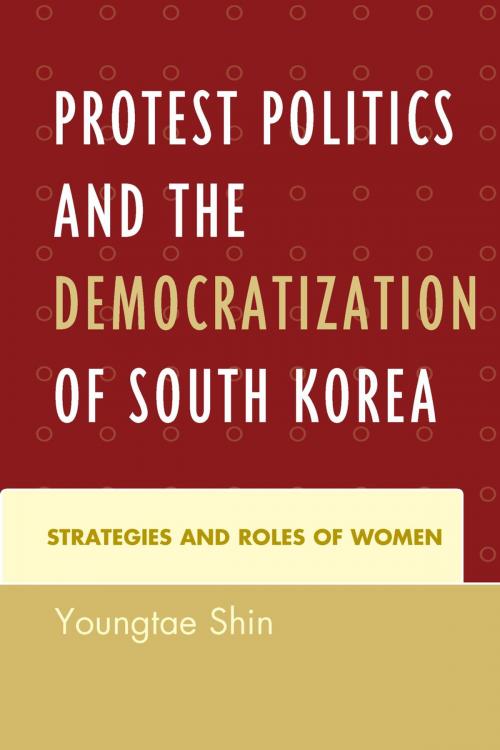Protest Politics and the Democratization of South Korea
Strategies and Roles of Women
Nonfiction, Social & Cultural Studies, Political Science, Government, Civics, Democracy, International| Author: | Youngtae Shin | ISBN: | 9780739190265 |
| Publisher: | Lexington Books | Publication: | November 20, 2014 |
| Imprint: | Lexington Books | Language: | English |
| Author: | Youngtae Shin |
| ISBN: | 9780739190265 |
| Publisher: | Lexington Books |
| Publication: | November 20, 2014 |
| Imprint: | Lexington Books |
| Language: | English |
This book is about protest politics and social movements led by a group of women, the “Mothers,” who were inadvertently drawn into South Korea’s democratization movement from the 1970s to the 2000s. The Mothers were female family members of political dissidents of varying backgrounds and ages—college students, political and religious leaders, writers, and factory workers. Women who initially had very little in common developed a bond as the days of their families’ detentions accumulated and their ordeals continued. This led them to form a quasi-organization prayer meeting group in the 1970s, which eventually developed into permanent Mothers’ organizations in the mid-1980s.
The Mothers in this book include both the early- and late-comers to the movement, as the membership has undergone many changes since its inception in the 1970s. While the individual Mothers are the primary focus, this book explores beyond their individual concerns and activities. It discusses various methods the individual Mothers employed to promote their causes and attempts to study how the activities of the organizations founded by the inexperienced Mothers have affected the process of Korea’s democratization and how they remain active decades later.
This book is about protest politics and social movements led by a group of women, the “Mothers,” who were inadvertently drawn into South Korea’s democratization movement from the 1970s to the 2000s. The Mothers were female family members of political dissidents of varying backgrounds and ages—college students, political and religious leaders, writers, and factory workers. Women who initially had very little in common developed a bond as the days of their families’ detentions accumulated and their ordeals continued. This led them to form a quasi-organization prayer meeting group in the 1970s, which eventually developed into permanent Mothers’ organizations in the mid-1980s.
The Mothers in this book include both the early- and late-comers to the movement, as the membership has undergone many changes since its inception in the 1970s. While the individual Mothers are the primary focus, this book explores beyond their individual concerns and activities. It discusses various methods the individual Mothers employed to promote their causes and attempts to study how the activities of the organizations founded by the inexperienced Mothers have affected the process of Korea’s democratization and how they remain active decades later.















